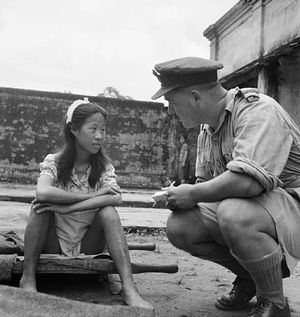The grainy, black-and-white footage showing dozens of dead women discarded in a mass grave may last only 19 seconds, but it speaks to decades of a struggle for justice. Reportedly filmed in the final months of World War II (WWII) in China’s Yunnan Province, the film embodies a scene that is part of the history of Japan’s military sexual slavery system from 1932 until the end of WWII.
Released by the Seoul Metropolitan Municipality and the Seoul National University Center for Human Rights in February 2018, the film gained widespread coverage internationally, but there was scarcely any mention of it in Japan. Over half a century later, the Japanese government still refuses to confront its own war record, insisting that the question of reparations has been settled and denying the atrocities that took place.
This refusal to adequately address past atrocities, primarily committed against women, permeates how women are viewed in Japanese society today. Attempts to deny, justify, or trivialize the pursuit of justice for the “comfort women” who suffered systematic war crimes remain widespread, including labeling survivors as “professional prostitutes” and attacking the validity of the testimonies and other evidence. While this is not a new phenomenon, it is appalling that reporting on the military sexual slavery system should still come with such difficulties.
Though this military slavery system occurred during the extremely difficult circumstances of war, its roots went deeper than conflict and occupation. The way Japan designed, operated, and expanded the system at the time also sprang from deep gender inequality in Japan as well as Japanese discrimination against neighboring peoples — phenomenons that still leave their mark on Japanese society today.
The status of Japanese women has dramatically improved over the past seven decades, but the country still has a long way to go. In 2017, a World Economic Forum survey placed Japan as the 114th worst-performing country out of 144 countries when it came to gender equality. There are shockingly few women in leadership positions across the government, and the public and private sectors. Japanese women and girls regularly suffer sexual violence and discrimination in all walks of life, and this is rarely brought to light despite the current global movement for empowerment. A recent study by Osaka International University documented 150 cases in which women working in government, the police, and media reported being sexually harassed.
Gender stereotypes are prevalent, and sexist attitudes continue to affect women’s daily lives. The definition of rape in the Penal Code is too narrow and does not conform to international standards; for example it does not explicitly criminalize marital rape.
Similarly, the descendants of people who were forcibly brought to Japan to work in early 20th century up to the end of the WWII, including from the Korean Peninsula and China, continue to endure discrimination. Attacks against the so-called zainichi – individuals of Korean descent – are widespread. Korean schools are excluded from the high school tuition waiver program. Advocacy of hatred is a near-daily menace.
The true scale of the atrocities, including the number of women and girls kept as sex slaves by the Japanese military, will never be known. The number of women and girls executed will never be known either. Information detailing the location and number of “comfort stations,” the facilities where women and girls were kept, was destroyed. Recent attempts to uncover documents and film footage about the sexual slavery are essential to counter efforts to cover up the crimes and to attest to the injustice still being perpetrated by the state. Beyond acknowledging the crimes, much broader reforms and guarantees of non-repetition are required.
But these cannot be reasons to deny justice to those whom it is owed. The question of reparations has become even more pressing as there are increasingly fewer survivors, many of them are now in their 90s, and their testimonies will be harder to come by.
Japan’s military sexual slavery system orchestrated by the government, which consisted of the rape of subject women and girls over a period of time, was unprecedented. Yet systematic violence against women is hardly unique to Japan’s history. We have seen the grim consequences of it in recent history – in the former Yugoslavia, Rwanda, Democratic Republic of Congo, and Guatemala – and we see it today, in Myanmar.
Acknowledging and prosecuting those responsible is required, but so are full and effective reparations for victims and comprehensive reforms to address the discrimination against women and girls in society that underpins the crimes.
Providing justice for the survivors of the military sexual slavery matters not only as a moral obligation but for what it says about our society now and in the future. Addressing these past human rights violations will contribute to improving the situation of women and minorities today as well help stop any repetition of these abhorrent crimes.
Hiroka Shoji is East Asia Researcher at Amnesty International

































